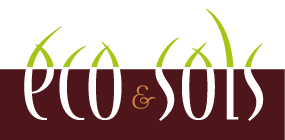Master 1 or 2 Subject: Soil carbon production, input, and stocks on costal environments and tide zone sediments in the Arcachon Bay
Soil carbon storage is receiving increasing attention in a framework of climate change mitigation, and carbon storage in marine sediments and costal environments have proven to play a major role. These environments have a high productivity and carbon fixing rates through marine biomass in the tide zone, and possibly act as major carbon stock and potential carbon sink acting as “receiver sites” when organic material accumulates on the coastline. However, the links between carbon productions in the tide zone close to the coastline, and sediment and coastline soil carbon stocks are still unclear.
In Arcachon Basin, Zostere seagrass is one of the prominent ecosystems along the coast, in the tide zone. Its decline, linked to altered hydrodynamics often ascribable to anthropic damages, induces a decreased photosynthetic efficiency, possibly resulting in reduced carbon storage in sediments and costal areas. RESTCOAST aims to set a restoration project to understand and manage hydrodynamics and ensure maximisation of costal ecosystem services, among which carbon storage is pivotal.
Many barriers, however, must be overcome to achieve a successful restoration project. In regards of soil carbon stocks and sinks, many informations are lacking, needed to understand the carbon cycle and balance of these costal environments:
- The net primary productivity of Zostere seagrass ecosystems (C production)
- Deposition of necromass on coastline (C input in coastline soils)
- C content of costal soils and sediments (C stocks)
These informations are the basis to start drawing a carbon balance of these costal ecosystem and understand its carbon fluxes and, ultimately, it’s potential carbon sinks.
The objective of this internship is to create the baseline of C production, input and stocks of Arcachon’s Bay area. This will enable to set up a monitoring system that can observe the evolution of C inputs and stocks over time, draw a C balance and assess the effectiveness of restoration measures to increase carbon sinks.
To achieve these objectives the main internship’s activities are:
- Collect soil samples from the coastline to assess coastal carbon stocks
- Collect sediment samples on the tide zone at different distance from the coastline (the depth of water covering the sediments can influence the potential carbon stocks) to assess sediment carbon stocks
- Collect biomass samples of Zostere seagrass in the tide zone to assess carbon production in the costal ecosystem
- Analyse the results
The fieldwork will be carried on the end of August 2022.
The laboratory analysis to assess carbon content of soil and sediment will be performed in UMR - Eco&sols laboratory (Montpellier) in September – December 2022.
The assessment of costal biomass deposition through remote sensing will be achieved in collaboration with Soil.is in October – January 2022/2023.
To apply, please send email to Isabelle BERTRAND






